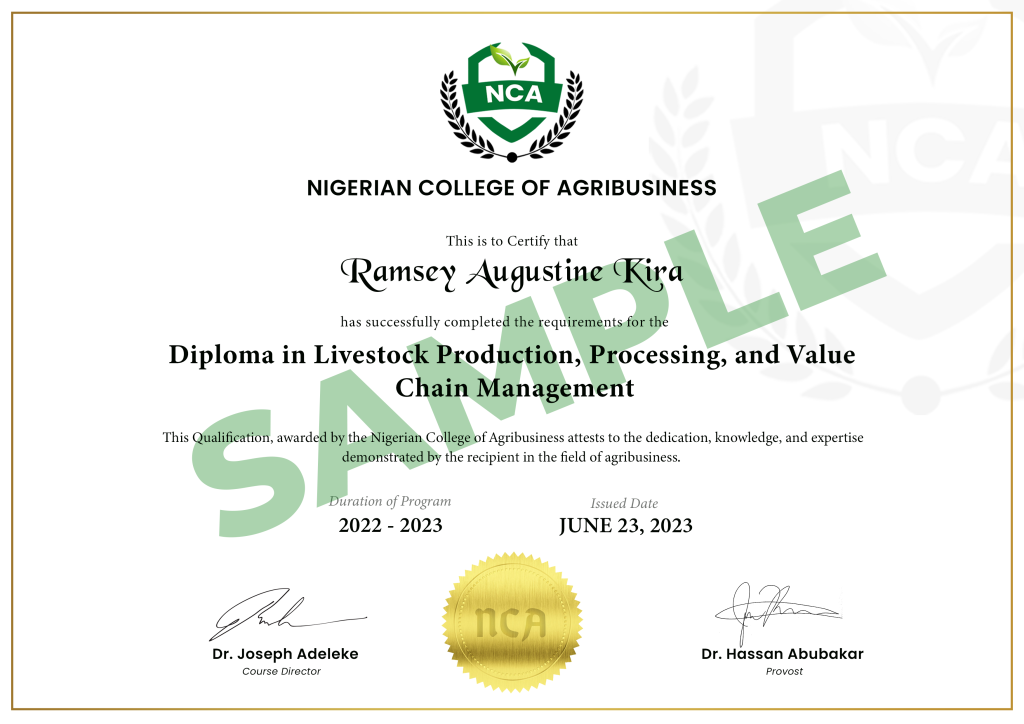The Diploma in International Development Management is a comprehensive and interdisciplinary program designed to prepare students for leadership roles in the field of international development. The program equips students with the knowledge, skills, and practical experience needed to address complex development challenges and drive positive change in the global arena.
The program will be delivered through a combination of:
The course offers the option of both Physical and Online Attendance.
Faculty members are experienced professionals with extensive years of practice experience in managing programs and projects.

Beneficiary Bank: Zenith Bank Plc
Account Number: 1228461510
Account Name: Nigerian College of Agribusiness
Do you need any further assistance regarding this program, send an email to: [email protected] or send chat with a program executive on WhatsApp via: 09023789104
Ready to Begin your application process? Click on “Apply Now” to access the application form

Our mission is to cultivate a vibrant, sustainable and profitable agribusiness sector that drives economic growth and social progress across Africa and beyond.
We are committed towards educating a new generation of agribusiness sector leaders that will transform the economic fortunes of the African continent
© NCAEDU 2023 All Rights Reserved.